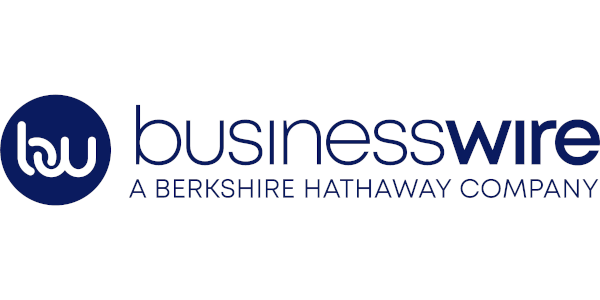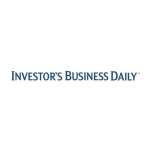Presidential Leadership Index is up 41.8% and National Outlook Index rises 21.3% over the last month
LOS ANGELES–(BUSINESS WIRE)–#Economicoutlook–The IBD/TIPP Economic Optimism Index, a leading national poll on consumer confidence, today revealed that consumer confidence is up for the second consecutive month. It rose 3.6% in February, moving from 50.1 last month to 51.9 this month, keeping the index in positive territory. For the IBD/TIPP indexes, a reading above 50.0 signals optimism and below 50.0 indicates pessimism.
The IBD/TIPP Economic Optimism Index has established a strong track record of foreshadowing the confidence indicators issued later each month by the University of Michigan and The Conference Board.
IBD/TIPP surveyed 1,261 adults from January 27 to January 29. The poll was conducted online using TechnoMetrica’s network of online panels to provide the sample.
In addition to the Economic Optimism Index, IBD/TIPP surveyed respondents on key political issues for the separate Presidential Leadership Index and National Outlook Index as well as the Financial Related Stress Index.
This month, the Presidential Leadership Index demonstrated a dramatic rise as Joe Biden took office on January 20. After two straight months of decline across all components, the index moved from 44.5 in January to 63.1 in February– a 41.8% increase. The reading of 63.1 is the highest since June 2009, the first year of Barack Obama’s first term. Notably, the Job Approval component increased the most, moving from 43.5 last month to 64.6 in February (+48.5%). It was closely followed by the Favorability component, which rose 44.1%, climbing from 44.9 to 64.7. The most modest gain on the index was in the Leadership component which still improved an impressive 33.0%, moving from 45.1 to 60.0.
The National Outlook Index also saw a significant spike after January’s dip. This month’s reading of 52.3 was up 21.3% from last month’s 43.1. Like the Presidential Leadership Index, this is the highest reading since June 2009. Four of six components on the index rose by double digits in February. The biggest mover was the Direction of the Country component, which had plummeted 17.4% to 31.9 in January; this month, it rose 42.9% to 45.6.
Financial stress improved for the third consecutive month as well, although the index remains high. This month stress declined 3.3%, moving from 63.7 in January to 61.6 in February. A reading over 50.0 equals more financial stress while a reading below 50.0 on this index would indicate consumers feel less stress. This index has been above 50.0 since March.
“Despite the ongoing pandemic, February’s indexes are quite promising,” said Ed Carson, IBD’s news editor. “What stands out is that even though there is still a lot of uncertainty about jobs and the economy, there is a feeling of greater stability and that the country is heading in the right direction. With new stimulus talks underway, this could give economic optimism a boost.”
The flagship IBD/TIPP Economic Optimism Index has three key components. This month, two of the three increased while one held flat.
- The Six-Month Economic Outlook, a measure of how consumers feel about the economy’s prospects in the next six months, increased by 4.9%, moving from 47.2 in January to 49.5 in February. The component, however, remains in negative territory for the fourth consecutive month.
- The Personal Financial Outlook, a measure of how Americans feel about their own finances in the next six months and the only component in positive territory, maintained its reading of 56.5 from January to February.
- Confidence in Federal Economic Policies, a proprietary IBD/TIPP measure of views on how government economic policies are working, again gained the most ground. It moved from 46.6 last month to 49.7 this month — a 6.7% increase.
“The job situation continues to look grim, with 57% of households falling into the job-sensitive category and 49% of respondents believing we are currently in a recession,” said Raghavan Mayur, president of TechnoMetrica, who directed the poll. “But Americans are adapting. Twenty-eight percent of respondents have moved since the start of COVID or plan to relocate within the next year, citing a lower cost of living, cheaper housing, moving closer to family and better job opportunities among their primary reasons.”
Economic Optimism Index Breakdown
This month, 11 of 21 demographic groups — such as age, income, race and party preference — that IBD/TIPP tracks are above 50.0, in positive territory, on the Economic Optimism Index. That’s vs. eight in January, nine in December, eight in November, 15 in October and three in September. Thirteen groups rose this month and two were unchanged. In January 12 groups rose vs. nine in December vs. just three in November, all 21 in October and seven in September.
For the Six-Month Economic Outlook component, nine of 21 groups that IBD/TIPP tracks scored in optimistic territory vs. seven in January, seven in December, eight in November, 13 in October and just one in the prior three months. Optimism over the economy’s six-month outlook rose among 15 groups vs. 14 groups in January, 10 in December, four in November and all 21 in October.
For the Personal Financial component, 17 groups IBD/TIPP tracked were in optimistic territory vs. 19 in January and December. That’s vs. 18 in November, 20 in October and 13 in September. Ten groups rose vs. 12 in January, 13 in December, three in November, 19 in October and five in September.
For the Federal Policies component, nine of the 21 demographic groups tracked were above 50.0, up from seven in January and five in December and November. In October, 10 groups were above 50.0 vs. two in September. Sixteen groups rose this month vs. 13 in January.
ABOUT THE IBD©/TIPP POLL
The IBD/TIPP Economic Optimism Index is the earliest take on consumer confidence each month and predicts with good reliability monthly changes in sentiment in well-known polls by The Conference Board and the University of Michigan. The IBD/TIPP Economic Optimism Index is based on a survey of 1,200 adults conducted using a network of online panels. The national poll is generally conducted in the first week of the month.
For more information, go to www.tipponline.com. To license the IBD/TIPP Poll, please contact IBDlicensing@investors.com.
About IBD
Investor’s Business Daily is the leader in stock research and education. For over 35 years, IBD has helped countless investors around the world make more money in the market and reach their financial goals.
Founded by legendary investor William O’Neil with the goal of democratizing stock investing, IBD provides its customers access to the same type of research Wall Street uses to make big profits. All of IBD’s products and content are based on the CAN SLIM Investing System, which uses historical precedent to identify leading stocks before their big price increases.
IBD helps its customers succeed in the market with its unparalleled stock research and education. IBD’s customers have access to its proprietary research, including market-beating stock lists, exclusive stock ratings and powerful investing tools that help them make more profitable trading decisions. In addition, IBD provides customers with world-class investing education that includes complimentary coaching, interactive webinars, videos, IBD University, live workshops and more.
IBD reaches investors around the world via its main website, Investors.com, its suite of digital products (IBD Digital, MarketSmith, Leaderboard, SwingTrader and IBD Live), mobile apps, a weekly print edition, social media and more. To learn more about all that IBD has available, please visit www.investors.com.
© 2021 Investor’s Business Daily, Inc. All rights reserved. Investor’s Business Daily, IBD, CAN SLIM and their corresponding logos are registered trademarks of Investor’s Business Daily, Inc.
Contacts
For Editorial Contact:
Marisa Lam
GMK Communications for IBD
marisa@gmkcommunications.com
650.544.3350






